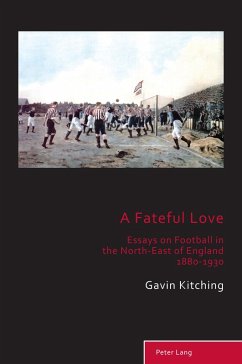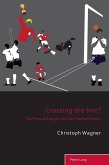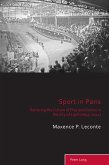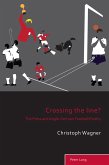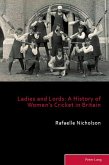How did the world's most popular sport begin? How was the ancient family of pastimes called «folk football» transformed into a new codified game - «association football» - which attracted such large numbers of players and paying spectators? Gavin Kitching tackles the question through a strikingly original and deeply researched history of the game in one of its most passionate strongholds: the north-east of England. Making extensive use of previously neglected newspaper reports and other sources, he shows how, in just a few years of the 1870s and 1880s, soccer evolved from its origins as a collective scramble into a dispersed and intricate passing game, exciting and rewarding for players and spectators alike. But the booming popularity of football in the Victorian North-East also had deeply ambiguous consequences - for footballers, for the clubs for which they played, and for the local press which reported the game and further fuelled its popularity. Kitching analyses these ambiguities in chapters on the professionalization and commercialisation of elite soccer in Newcastle and Sunderland and in an account of the «shamateur» Northern League clubs of the Durham coalfield. A Fateful Love concludes by tracing these ambiguities through to the present day. The visual excitement and beauty that created professional football lives on, but the media-driven «commodification» which has marked it from its beginnings has now reached levels which raise profound concerns for the game's future.
Dieser Download kann aus rechtlichen Gründen nur mit Rechnungsadresse in A, D ausgeliefert werden.
«A Fateful Love unpicks the intricate complexities of football's origins and rapid commercialization in a way that not only explains the past but also illuminates current debates about the meaning of the game. Combining mastery of the archive, deft theoretical insights, and the feeling for the game of a lifelong fan, Gavin Kitching's new book is an important contribution to our understanding of how and why football became so important to so many people.» (Tony Collins, author of Sport in Capitalist Society and How Football Began)
«A Fateful Love unpicks the intricate complexities of football's origins and rapid commercialization in a way that not only explains the past but also illuminates current debates about the meaning of the game. Combining mastery of the archive, deft theoretical insights, and the feeling for the game of a lifelong fan, Gavin Kitching's new book is an important contribution to our understanding of how and why football became so important to so many people.» (Tony Collins, author of Sport in Capitalist Society and How Football Began)

